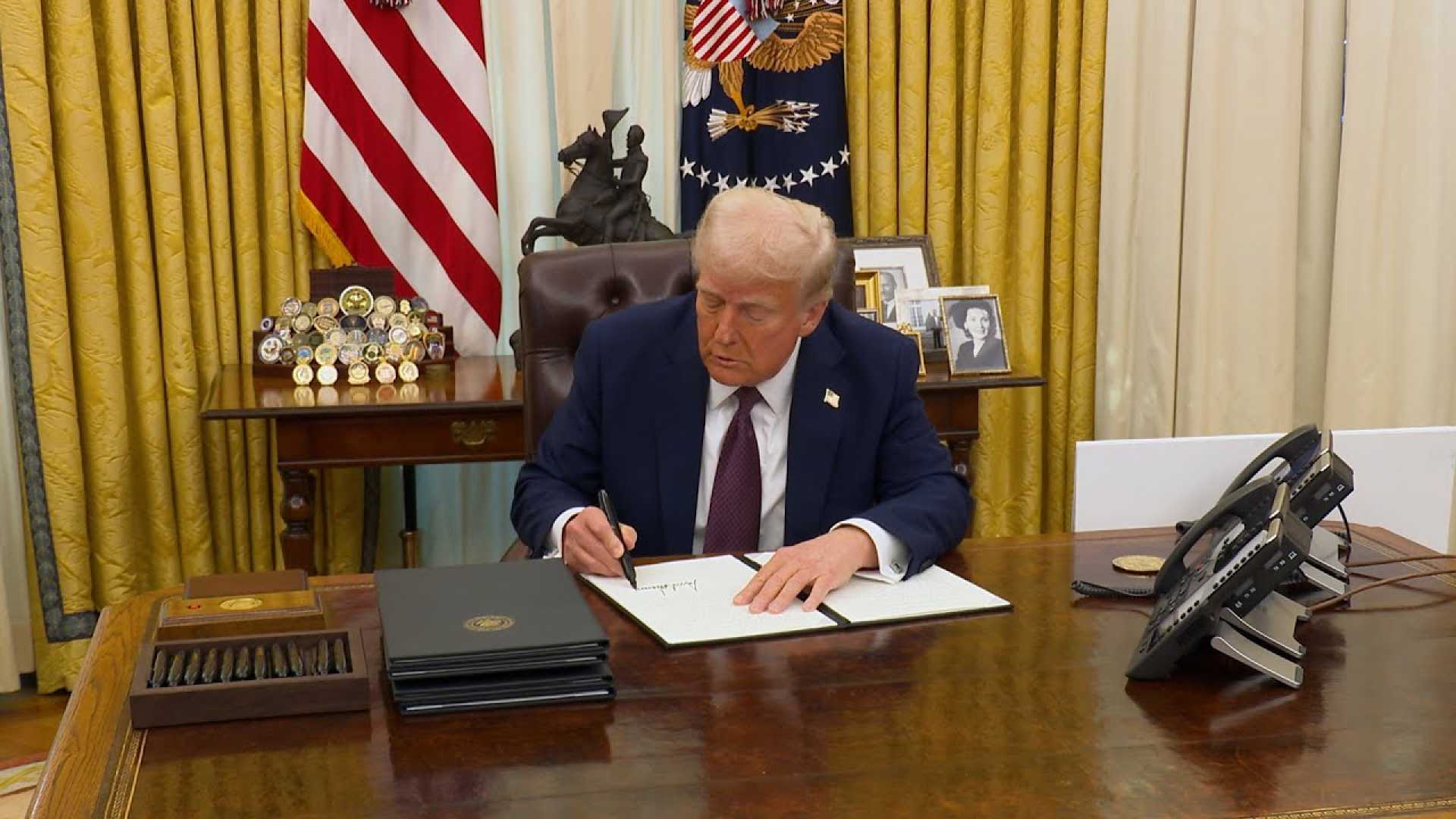Politics
Trump Orders Security Review of Law Firm WilmerHale Over National Security Concerns

WASHINGTON, D.C. — President Donald Trump signed an executive order on March 27, 2025, aimed at suspending security clearances and reducing federal contracting with the law firm Wilmer Cutler Pickering Hale and Dorr LLP, commonly known as WilmerHale, due to alleged conduct detrimental to national interests.
In the order, Trump criticized the law firm’s pro bono efforts, claiming they support activities that threaten public safety and national security. He accused WilmerHale of engaging in partisan representation, racial discrimination, and actions that undermine American elections, including facilitating noncitizen voting.
“Law firms that engage in such egregious conduct should not have access to our nation’s secrets,” Trump stated in the order. The executive action comes amid growing scrutiny of the activities and influence of major law firms in the United States.
The order mandates the Attorney General and the Director of National Intelligence to review the security clearances held by WilmerHale employees and to suspend them if deemed inconsistent with the national interest. Additionally, the Office of Management and Budget is tasked with identifying government services provided to WilmerHale, aiming to cease such provisions where legally permissible.
“To prevent the transfer of taxpayer dollars to Federal contractors whose earnings subsidize activities that do not align with American interests, contracting agencies will be required to disclose any business arrangements with WilmerHale,” Trump added.
The order includes provisions for a 30-day review of existing contracts with WilmerHale, alongside instructions for agencies to ensure any future contracts align with the administration’s priorities, particularly regarding national security. The heads of federal agencies are directed to limit official access to WilmerHale employees if it threatens U.S. interests and to consider withholding future hiring of its staff.
WilmerHale has been under fire for its association with figures like Robert Mueller, who led a controversial investigation into Trump’s presidential campaign. The firm attracted further scrutiny after welcoming Mueller and his colleagues, a move Trump characterized as an endorsement of government ‘weaponization.’
“This weaponization of the justice system must not be rewarded, let alone condoned,” Trump asserted.
The executive order is part of a broader strategy to reshape the federal government’s interaction with private entities that the administration views as misaligned with American interests. Further measures may follow as the administration continues to address its concerns regarding big law firms and their influence on American governance and society.
In response to the order, critics have raised concerns about its potential implications for legal practices and freedoms. Advocates for the legal profession emphasize the importance of pro bono work and argue that limiting such measures could harm public interests.
As this situation develops, the implications of Trump’s order on WilmerHale and similar firms will likely warrant close attention within legal and political circles.












